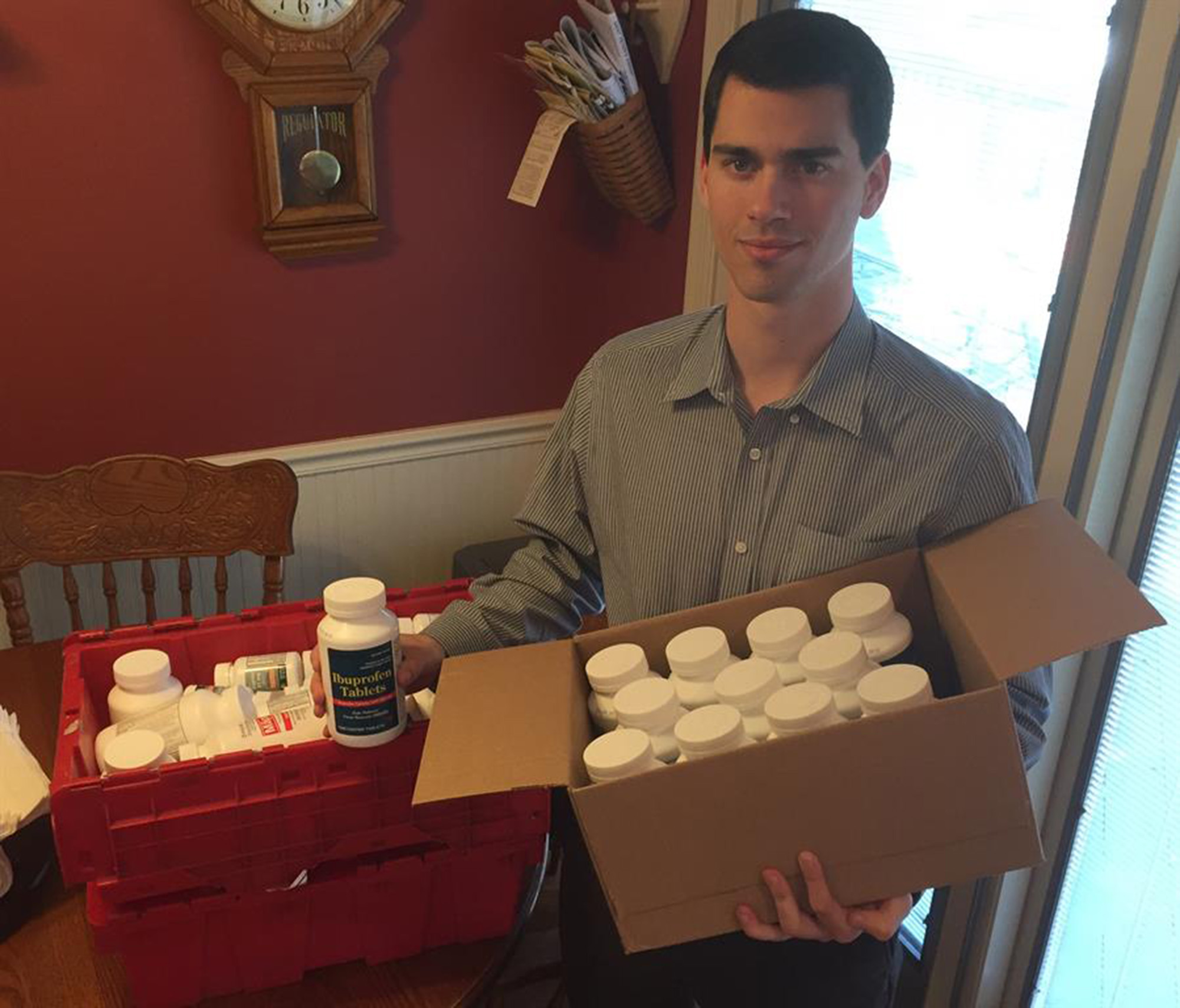In 2015, student Matt Hollister and Stefano Brugnerotto stepped onto a train en route to a basketball game. They got to talking about a community service project assigned to Hollister, and by the end of the 40-minute train ride, they had a 30-year plan for a venture to reuse expired drugs.
In February, the University Health Center partnered with the James Hollister Wellness Foundation, co-founded by Hollister, a senior biology major at the University of Maryland, and Brugnerotto, a graduate of Loyola University Maryland. The organization’s goal is to save viable medications that have passed their expiration date from being wasted by sending the medicine to people who need it.
The foundation is named after Hollister’s father, who died of brain cancer in 2015.
[Read more: Vintage Voices, James Hollister Wellness Foundation win $5,000 at Do Good Challenge finals]
“After he passed away, we still had a few thousand dollars worth of cancer medication,” Hollister said. “We took them to a drop-off facility and learned they most likely destroy them. I began to do research on how that could have been prevented.”
The partnership is ready to begin, health center associate director Deirdre Younger wrote in an email.
“When the Pharmacy has expired oral over-the-counter medications, the Pharmacy manager will contact Matt so he can pick them up for testing by the lab the Foundation has partnered with,” Younger wrote.
To reuse expired medicine, the potency of the medication has to be tested and results have to be approved by the Food and Drug Administration. The organization has partnered with a lab in Tennessee that has an FDA license to conduct these tests.
“As the campus connector, I am a big proponent of greater collaboration around campus, and I believe students should take advantage of all the resources, amenities and incredible faculty and staff available to them at the university,” Sameer Popat, who works within the Division of Research to connect the university with ventures started by university alumni or students to give them more publicity and connect them to campus resources, wrote in an email. “It is exciting to hear of a student venture like the James Hollister Wellness Foundation partnering with the UMD Health Center.”
Hollister and Brugnerotto are currently partnered with two other pharmacies in Maryland as well.
A study conducted by the FDA, which looked at more than 100 prescription and over-the-counter drugs, found 90 percent were still safe for use after they’d expired.
The foundation sorts donated medications in an electronic database, before they’re tested to see if they’re still viable, according to its website.
Charities and other organizations that work in developing countries will solicit medical supplies from the foundation. So far, its medications have been sent to Honduras and Bolivia, among other countries.
As of now, the foundation has helped about 17,000 people and donated about $5,000 to $6,000 worth of medication, Hollister said.
[Read more: Chemotherapy for cancer could become more effective, thanks to a UMD researcher’s work]
“This is a charity that can help supply pharmaceutical products in terms of disaster relief in a way that hasn’t been done before,” said Brugnerotto, who works with the foundation full time. “With Hurricane Harvey, the Red Cross took days to source and send drugs, but what we are doing can revolutionize the way drugs are stockpiled. We will have a storage of drugs ready to go, and if something happens, they can be sent immediately over.”
The foundation also has a for-profit arm called Save, Inc., which was created to help sustain the nonprofit venture. This involves selling some of the reused medicine to health ministries and embassies in other countries at reduced rates.
On Feb. 28, the two co-founders talked with 80 venture capitalists, Hollister said, and they’re in the process of securing about $100,000 in funding. In the long term, they hope to partner with major pharmacy and hospital networks instead of individual pharmacies, Brugnerotto said.
“The whole point of this isn’t just to save medicine. The goal is to ultimately save lives,” Hollister said. “Just being able to help people like my father and make the world a better place is why this is worth it.”



